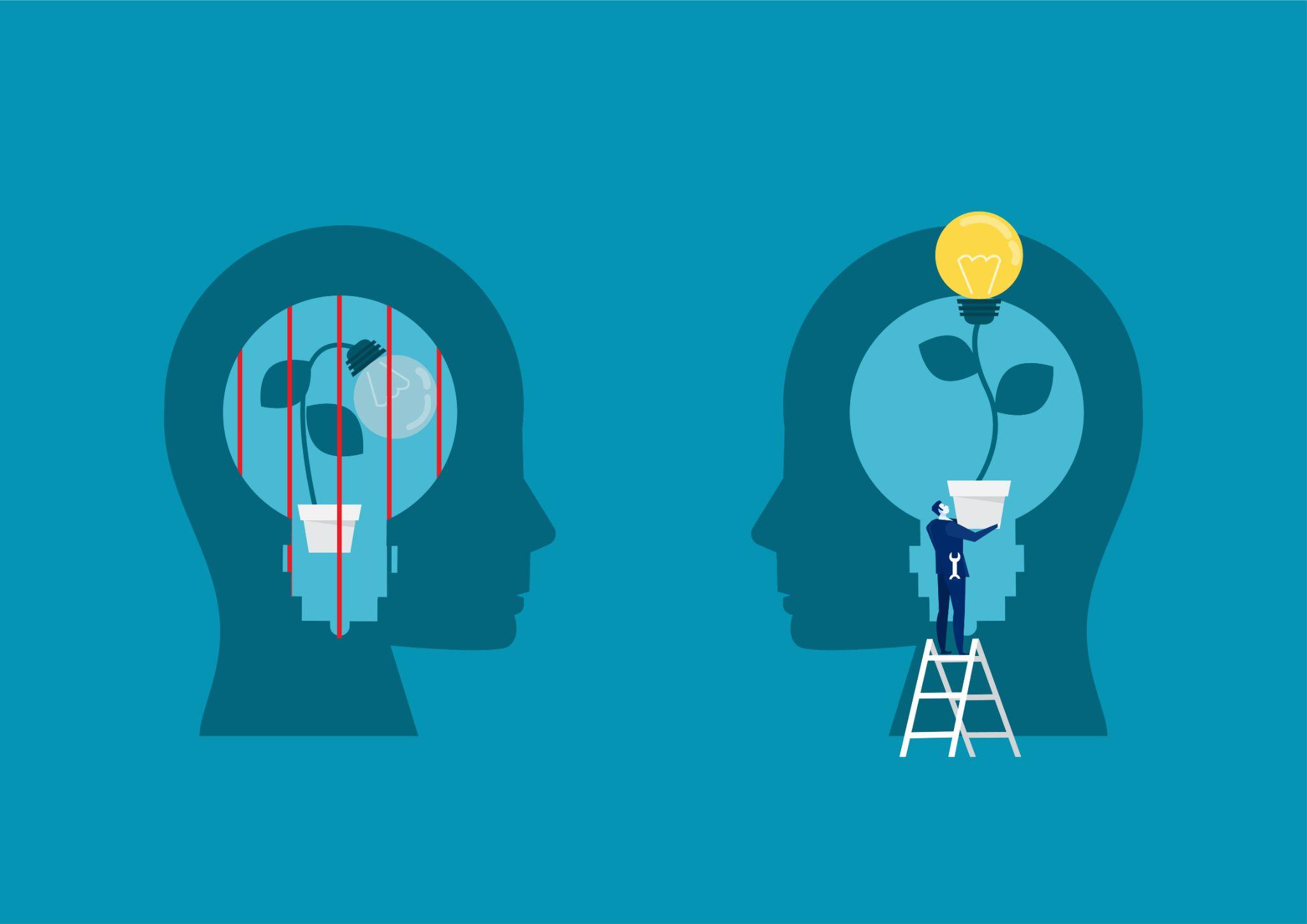
Our Addiction Resources
Navigating the world of addiction and recovery can be overwhelming. We’re here to provide clear, compassionate education and guidance. From practical advice for maintaining sobriety to informational guidance on the long-term effects of substance abuse, our content is a beacon of hope and understanding.
Our Team is Ready are ready to take your call
Call us Today!
or we can call you. Fill out form below
Our Blog

Inspiring and Mood-Boosting Songs for Addiction Recovery
Music has the unique ability to connect with our emotions and inspire change, making it a powerful tool in the journey of addiction recovery. It can lift your spirits during difficult moments, celebrate your milestones, and remind you of the strength you possess.
For those in recovery, music can serve as both a companion and motivator, offering mood-boosting melodies and inspirational song lyrics that resonate deeply.
The healing power of music for addiction recovery is undeniable. From mood-boosting songs about addiction and resilience to stories of artists who’ve faced similar struggles, music provides a path to emotional connection, strength, and hope. Whether you’re seeking motivation or solace, the right music can make all the difference.
The Healing Power of Music
Music has long been used in therapeutic settings to promote emotional well-being and personal growth. The structured approach of music therapy integrates melodies and rhythms to support mental health and recovery. Here’s why music is so impactful for addiction recovery:
- Emotional Regulation: Music acts as a safe outlet to process and express emotions. Listening to mood-boosting songs can help alleviate stress, anxiety, and sadness, replacing them with hope and motivation.
- Building Resilience: Inspirational songs often contain powerful messages of overcoming adversity, which can resonate deeply with individuals navigating recovery. Hearing lyrics that mirror your journey can help provide a sense of solidarity and encouragement.
- Staying Motivated: Recovery is a marathon, not a sprint, and it requires sustained motivation. A curated playlist of songs about addiction and triumph can help provide ongoing inspiration to keep moving forward.
By incorporating music into daily routines, individuals can create an uplifting environment that supports emotional healing and personal resilience.
12 Inspiring Songs for Recovery
Music can help tell the story of recovery, offering both solace and celebration along the way. Below is a playlist featuring inspirational songs designed to foster resilience, growth, and healing.
1. “Fight Song” by Rachel Platten
This anthem is all about reclaiming your strength and finding your voice after hardship. The inspirational song lyrics, “This is my fight song, take back my life song,” encourage listeners to take control of their lives. Platten wrote this song during a difficult time in her career, making it a perfect reminder that perseverance pays off, even when the odds seem stacked against you.
2. “I’m Still Standing” by Elton John
A celebration of resilience, this upbeat track is ideal for reflecting on how far you’ve come. Elton John’s journey to sobriety adds an extra layer of meaning to the lyrics. As someone who overcame addiction and built a successful life in recovery, Elton’s triumphant melody resonates deeply with anyone working to rebuild themselves.
3. “Stronger (What Doesn’t Kill You)” by Kelly Clarkson
Clarkson’s hit encourages seeing adversity as an opportunity for growth. The message, “What doesn’t kill you makes you stronger,” is a powerful mantra for recovery. While not explicitly about addiction, its universal appeal makes it a favorite for inspiring resilience and self-empowerment.
4. “Not Afraid” by Eminem
Eminem’s raw honesty about his struggles with addiction and determination to overcome them shines through in this powerful track. Lines like “I’m not afraid to take a stand” reflect his journey to sobriety and his commitment to personal growth. His recovery story makes this song an inspiring anthem for anyone ready to take the next step toward healing.
5. “Unwritten” by Natasha Bedingfield
This song is a call to embrace the blank page of your future and take charge of writing your own story. Its upbeat melody and hopeful lyrics, such as “Today is where your book begins,” encourage listeners to let go of the past and focus on the possibilities ahead.
6. “Lean on Me” by Bill Withers
This timeless classic highlights the value of a strong support system during tough times. Its heartfelt lyrics resonate even more when we consider the importance of community and connection in overcoming addiction.

7. “Glorious” by Macklemore feat. Skylar Grey
Macklemore draws from his journey to sobriety, celebrating second chances and gratitude in this uplifting track. The lyrics, “I feel glorious, glorious, got a chance to start again,” remind listeners that recovery is an opportunity to rebuild and embrace a new beginning. Macklemore’s openness about his recovery journey adds a personal and relatable touch to this uplifting song.
8. “Three Little Birds” by Bob Marley
This reggae classic is a soothing reminder that brighter days are ahead. Its iconic lyrics, “Don’t worry about a thing, ’cause every little thing is gonna be all right,” offer a comforting mantra during moments of doubt or anxiety. Marley’s calming melody provides a much-needed sense of peace and assurance, particularly in recovery.
9. “Beautiful” by Christina Aguilera
A powerful ballad about self-acceptance and inner beauty, this song encourages listeners to embrace their worth, no matter their past. Its emotional resonance can help rebuild self-esteem during recovery, offering a reminder that every individual is deserving of love and acceptance.
10. “Rise Up” by Andra Day
This soulful anthem is about finding the courage to rise above challenges and keep pushing forward. Andra Day’s lyrics, “I’ll rise up, in spite of the ache,” speak directly to the struggles of recovery, making it a perfect choice for moments when encouragement is needed.
11. “Recovery” by James Arthur
James Arthur’s deeply personal song is an anthem of healing and redemption. Written about his own struggles with addiction and mental health, this track speaks directly to those navigating recovery, offering a message of hope and transformation.
12. “Here Comes the Sun” by The Beatles
This iconic song is a hopeful anthem about brighter days ahead. Written by George Harrison during a time of personal struggles, the lyrics, “Here comes the sun, and I say it’s all right,” remind listeners that no matter how difficult life may seem, renewal and positivity are just around the corner. Its uplifting melody and timeless message make it a perfect choice for anyone navigating recovery, offering a sense of peace and optimism.
Find Healing and Growth With Lumina Recovery
Music is a universal medium that connects directly to the soul, making it an invaluable tool for addiction recovery. From mood-boosting songs to powerful stories behind the lyrics, music offers a path to healing like no other.
At Lumina Recovery, we integrate music therapy into our evidence-based programs, including dual diagnosis treatment and individual therapy. These services help address not only the addiction but also the underlying mental health conditions that may contribute to it.
Take the first step toward a healthier life and contact our team to explore how our programs can support your recovery journey.

How Those on a Recovery Journey Benefit From Music
Addiction recovery is a deeply personal and challenging journey that requires various therapies to achieve lasting success. While traditional therapies like counseling and medication-assisted treatment (MAT) are essential, holistic therapies are gaining recognition for their transformative potential.
Among these, music therapy stands out as a unique and powerful tool. Whether through listening, creating, or engaging in group activities, music offers a pathway to healing that addresses emotional, cognitive, physical, and social dimensions. Exploring the role of music in addiction recovery and its incorporation into the journey can offer profound benefits for individuals with addiction and their loved ones.
Understanding Music Therapy
Music therapy is a structured and scientifically supported practice that incorporates music-based interventions to help individuals achieve personalized therapeutic goals. Administered by credentialed professionals who have completed approved music therapy programs, it addresses physical, emotional, cognitive, and social needs of individuals across various age groups and health conditions.
The history of music therapy dates back to ancient times, with philosophical references from Aristotle and Plato acknowledging music’s healing influence. In the United States, the first reference of the practice was seen in 1789 in the article “Music Physically Considered” in Columbian Magazine.1
The 20th century saw significant developments, particularly during and after World Wars I and II, when musicians provided therapeutic services to soldiers suffering from physical and emotional trauma. This period highlighted the need for formalized training, leading to the establishment of the first university courses in music therapy.1
Today, music therapy is recognized as an allied health profession, delivering health services that complement traditional medical treatments. Therapists employ various techniques, including music listening, songwriting, improvisation, and lyric analysis, to fulfill goals related to movement, cognition, speech and language, and mental health.
The adaptability of music allows it to be utilized with individuals, groups, and in diverse settings, making it a versatile tool in promoting wellness and facilitating healing.
Benefits of Music Therapy
Music therapy offers a wide range of benefits that support emotional healing, physical well-being, cognitive enhancement, and social connection, making it a valuable tool in addiction recovery.
Emotional Benefits
One of the most significant benefits of music for addiction recovery is its ability to help facilitate emotional expression and healing. Addiction often involves suppressed emotions or overwhelming feelings that can be difficult to process.
Music provides a safe outlet for expressing these emotions, whether through singing, songwriting, or listening to relatable lyrics.
Moreover, music has a calming effect, helping reduce stress and anxiety levels that frequently accompany recovery. A soothing playlist can help individuals relax during challenging moments, while upbeat tunes can uplift their mood and combat depression. This emotional stability is essential for sustaining progress in recovery.
Physical Benefits
Music can offer tangible physical benefits that support addiction recovery music therapies. For many individuals, sleep disturbances are a common struggle during recovery. Listening to calming music before bedtime can help regulate sleep patterns and improve overall restfulness, which is vital for both mental and physical health.
Another significant physical benefit is pain management. Music has been shown to help reduce the perception of pain, making it a helpful tool for individuals experiencing withdrawal symptoms or lingering discomfort. Additionally, rhythmic music can help promote relaxation by easing muscle tension, further contributing to the body’s healing process.
Cognitive Benefits
Music therapy can have profound effects on cognitive function, making it an excellent complement to traditional therapies like cognitive behavioral therapy (CBT). Engaging with music helps enhance memory and focus, both of which can be impaired during addiction.
Whether through learning an instrument, singing, or simply paying attention to lyrics, music helps stimulate the brain and improve mental clarity. Music can help increase attention span and improve decision-making skills.
These cognitive enhancements are critical in music and addiction recovery, as they empower individuals to stay focused on their goals and navigate challenges effectively.
Social Benefits
The social benefits of music in addiction recovery cannot be overstated. Addiction often leads to isolation, but music therapy helps foster connection and community. Participating in group music sessions, such as choirs or drum circles, helps provide individuals with a sense of belonging and support.
Music also helps improve communication skills, encouraging individuals to express themselves and collaborate with others. This helps rebuild trust and relationships, which are often strained during addiction. For many, the camaraderie found in musical activities can be a lifeline in recovery.

Scientific Evidence Supporting Music Therapy
Scientific studies consistently show that music therapy reduces stress and enhances emotional resilience during recovery. The American Music Therapy Association revealed that music significantly reduces stress and anxiety levels in individuals undergoing addiction treatment.2
Another study highlighted music’s ability to help manage cravings, showing that it can be a powerful coping tool during recovery.3
Experts like Dr. Michael Thaut, a renowned researcher in the field of music and neuroscience, have noted that music helps rewire the brain by creating new neural pathways. This supports long-term healing and resilience in music addiction recovery.4
4 Practical Ways to Incorporate Music Into Your Recovery Journey
Incorporating music for addiction recovery into your daily routine doesn’t have to be complicated. Here are some practical ways to use music as a tool for healing:
- Create personalized playlists. Tailor playlists to suit different moods or activities. For example, soothing tracks can help with relaxation, while upbeat songs can energize your day.
- Join community music groups. Participating in choirs, bands, or drum circles helps foster a sense of community and provides a supportive environment for self-expression.
- Explore songwriting or learning an instrument. Writing lyrics or learning to play an instrument can offer a creative outlet and helps improve focus and self-discipline.
- Use music therapy apps. Apps like Calm or Insight Timer offer guided meditations and therapeutic music, making it easy to incorporate music into your daily routine.
3 Expert Tips for Maximizing the Benefits of Music Therapy
To fully embrace the potential of music and recovery, consider these expert tips:
- Choose the right music. Different types of music evoke different responses. Experiment to find songs that resonate with your emotions and goals.
- et realistic goals. Whether you’re learning to play an instrument or committing to daily music listening, start small and build gradually.
- Stay consistent. Like any therapy, consistency is key. Make music a regular part of your routine for lasting benefits.
Find Support Through Music With Lumina Recovery
Music therapy is a versatile and transformative tool in addiction recovery, helping individuals heal emotionally, physically, and socially.
At Lumina Recovery, we offer programs like group therapy to foster community and EMDR therapy to process past traumas, both of which align with the benefits of music in recovery.
Take the next step in your healing journey by discovering how music and addiction recovery transform lives. Contact us today to learn more about our compassionate care and personalized treatment options.
Sources:

Growth vs. Fixed Mindset in Addiction Recovery
Your mindset can be the most powerful tool in your recovery—or your biggest obstacle. Which mindset are you choosing?
In addiction recovery, your perspective matters. The way you view challenges, setbacks, and your ability to improve can shape your journey. Psychologist Carol Dweck introduced us to the concepts of the growth mindset vs. fixed mindset.
A growth mindset focuses on the belief that progress is possible and that abilities can be developed over time. A fixed mindset, on the other hand, keeps you stuck, believing that change is impossible.
By understanding the difference between growth and fixed mindsets, you can empower yourself to step outside your comfort zone, embrace challenges, and see recovery as a process of continual growth.
A Fixed Mindset in Addiction Recovery
A fixed mindset is the belief that your qualities, abilities, and circumstances are unchangeable. It leads to thoughts like:
- “I’ll always be an addict.”
- “I can’t change, so why try?”
- “Recovery is too hard for me.”
Common Characteristics of a Fixed Mindset
- Avoiding challenges. People with a fixed mindset avoid stepping outside their comfort zone for fear of failure.
- Feeling helpless or stuck. They see obstacles as permanent barriers instead of temporary hurdles.
- Viewing relapse as failure. Setbacks reinforce negative beliefs that recovery isn’t possible.
Impact on Recovery
A fixed mindset can sabotage your progress. When you believe you’re incapable of change, you resist the efforts required to heal. Relapses are seen as confirmation of failure rather than opportunities to learn.
For example, someone with a fixed mindset might think, “I relapsed, so I’ll never get better.” This kind of thinking creates hopelessness and prevents individuals from seeking help or engaging fully in therapy.
Without growth, the cycle of addiction often continues, reinforcing self-doubt and shame.
What Is a Growth Mindset and Why Is It Vital in Recovery?
A growth mindset is the belief that you can learn, improve, and grow through effort and persistence. This perspective shifts your focus from what you can’t do to what you can work toward.
Carol Dweck’s research shows that people with a growth mindset believe abilities can be developed with time and practice.1 In addiction recovery, this belief is essential for progress.
Core Principles of a Growth Mindset
- Belief in change. You recognize that growth is possible, no matter where you are starting from.
- Effort is meaningful. Hard work and persistence lead to results over time.
- Mistakes are learning opportunities. Instead of fearing failure, you see it as a chance to grow.
Why a Growth Mindset Is Essential for Recovery
- Encourages persistence. When recovery feels difficult, a growth mindset helps you keep going.
- Builds resilience. Setbacks are not failures—they are chances to adapt and strengthen your recovery plan.
- Promotes long-term healing. By believing you can improve, you commit to the process of recovery and embrace challenges as part of your journey.
For someone in recovery, adopting a growth mindset means stepping outside of your comfort zone, pushing past self-doubt, and recognizing your potential for change.
Scientific Backing: Why Mindset Matters
The importance of mindset isn’t just an idea—it’s grounded in science.
Carol Dweck’s Research on Growth Mindset vs. Fixed Mindset
Dweck’s studies demonstrate that people with a growth mindset are more likely to succeed in learning environments, embrace challenges, and persist in the face of setbacks. These principles are directly applicable to addiction recovery.1
The Brain and Neuroplasticity
Neuroscience reveals that the brain is capable of neuroplasticity—the ability to reorganize and form new pathways. When you practice positive thinking, engage in therapy, and focus on growth, your brain physically rewires itself to support healthier habits and thought patterns.2
For example, someone with a growth mindset might reframe a relapse as: “What can I learn from this experience?” This kind of thinking strengthens new neural pathways that help you respond to future challenges more effectively.
Adopting a growth mindset is essential because it helps you move forward, rewire your brain, and create a healthier future.

6 Practical Steps to Develop a Growth Mindset in Recovery
Shifting from a fixed mindset to a growth mindset doesn’t happen overnight. It requires practice, self-awareness, and commitment. Here are actionable strategies to help:
1. Daily Positive Affirmations
Replace negative thoughts like “I can’t recover” with empowering ones such as “I am capable of change” or “Every day, I’m growing stronger.”
2. Step Outside Your Comfort Zone
Growth happens when you take on challenges that feel unfamiliar or difficult. Whether it’s opening up in therapy, attending a support group, or trying new coping strategies, stepping outside your comfort zone builds confidence.
3. Reframe Relapse
Instead of seeing relapse as failure, view it as a learning opportunity. Ask yourself: “What triggered this? How can I prepare differently next time?”
4. Journaling Progress
Track your wins—big and small. Reflect on how far you’ve come and the lessons you’ve learned. Progress takes time, and journaling can help you see your growth.
5. Therapy and Support Groups
Therapy methods like cognitive behavioral therapy (CBT) help you challenge fixed mindset beliefs and replace them with growth-focused thinking. Support groups provide encouragement and validation from others who understand the journey.
6. Practice Gratitude
Focusing on the positives in your recovery shifts attention away from setbacks. Keep a daily gratitude list to celebrate what’s working and the progress you’ve made.
Self-Assessment: Is Your Mindset Helping or Hurting Your Recovery?
Reflect on these questions:
- Do you avoid challenges in your recovery journey?
- How do you view setbacks—are they failures or opportunities to learn?
- Do you believe you have the power to change and grow?
If you see room for improvement, remember: your mindset can change. The shift from a fixed mindset to a growth mindset is essential for lasting recovery.
Choose Growth and Healing With Lumina Recovery
Your mindset plays a critical role in shaping your recovery journey. Shifting from a fixed mindset to a growth mindset helps you step outside your comfort zone, embrace progress, and transform setbacks into opportunities.
At Lumina Recovery, we provide individual therapy and cognitive behavioral therapy (CBT) to help you develop a growth mindset, overcome negative beliefs, and achieve lasting healing. These services empower you to recognize your potential for change and support your commitment to recovery.
If you’re ready to embrace growth and take control of your future, contact Lumina Recovery today.
Sources:

The Benefits of Breathwork in Addiction Recovery
Addiction recovery is a challenging process, requiring individuals to address physical, emotional, and psychological issues while rebuilding their lives. For many, the road to sobriety involves navigating triggers, managing cravings, and coping with stress.
Breathwork, an increasingly popular holistic approach, has emerged as a valuable complementary tool in recovery.
Breathwork involves intentional breathing exercises and techniques that help calm the nervous system, reduce stress, and support emotional healing. This practice taps into the body’s natural mechanisms to promote relaxation, balance, and resilience, making it a powerful aid in addiction recovery.
What Is Breathwork Therapy?
Breathwork therapy refers to a collection of breathing practices that regulate the autonomic nervous system, which controls automatic bodily functions such as heart rate and digestion.
Historically, breathwork has its roots in ancient traditions like yoga and meditation. Today, modern breathwork practices such as holotropic breathwork, box breathing, and 4-7-8 breathing are widely used in therapeutic settings to address trauma, stress, and other health conditions, including addiction.
Breathwork aids addiction recovery by giving individuals tools to manage cravings, process difficult emotions, and cultivate mindfulness. By focusing on deep breaths and controlled breathing, individuals can interrupt negative thought patterns and foster a sense of empowerment over their journey to sobriety.
The Science Behind Breathwork
Breathwork directly influences the autonomic nervous system. Deep breaths and slow, controlled breathing exercises help engage the parasympathetic nervous system—the “rest-and-digest” counterpart to the sympathetic nervous system, or fight-or-flight response.1
This balance is crucial for individuals in recovery who often experience heightened anxiety, stress, and emotional instability.
Specific breathing practices like diaphragmatic breathing and alternate nostril breathing may help reduce cortisol levels and lower blood pressure. These methods may also help improve heart rate variability, a key indicator of a calm nervous system.
Additionally, techniques like 4-7-8 breathing have been found to help individuals manage cravings by fostering mindfulness and reducing the impact of stress on the body.
For those in recovery, breathwork’s ability to calm the nervous system and promote mental and emotional balance is invaluable. It not only addresses immediate stress but also supports long-term emotional resilience and mental health.
3 Key Benefits of Breathwork in Addiction Recovery
1. Emotional Benefits
Breathwork helps individuals process and release stored emotions. Addiction often stems from or is exacerbated by unresolved trauma and emotional distress.
Practices like holotropic breathwork and slow deep breathing provide a safe space to confront and work through these challenges. By calming the nervous system, breathwork can help reduce stress, anxiety, and emotional overwhelm, creating a foundation for emotional healing.
2. Mental Benefits
Breathing exercises can help improve mental clarity and focus, making it easier to stay committed to recovery goals. Techniques like box breathing and 4-7-8 breathing are especially effective for helping to reduce cravings and manage the fight-or-flight response that can be triggered during recovery.
These controlled breathing practices also help foster mindfulness, helping individuals cultivate a positive mindset and resilience against relapse.
3. Physical Benefits
Addiction often takes a toll on the body, weakening the immune system and disrupting sleep. Breathwork helps support physical healing by improving oxygen circulation, enhancing immunity, and promoting restful sleep.
Practices like diaphragmatic breathing and alternate nostril breathing can also alleviate physical symptoms of stress, such as tension headaches and muscle tightness, making the recovery process more manageable.

Popular Breathwork Techniques
Several breathwork techniques are particularly beneficial in addiction recovery:
- Holotropic Breathwork: This technique involves deep, rhythmic breathing to achieve altered states of consciousness, allowing for emotional release and self-discovery.
- 4-7-8 Breathing: This method entails inhaling for four seconds, holding your breath for seven seconds, and exhaling for eight seconds. It’s a simple yet effective way to help calm the nervous system and reduce cravings.
- Box Breathing: A structured practice that involves inhaling, holding, exhaling, and pausing for equal counts. It’s ideal for helping to manage stress and enhance focus.
- Alternate Nostril Breathing: By alternating breaths between nostrils, this practice helps balance the nervous system and reduce anxiety.
- Diaphragmatic Breathing: Also known as belly breathing, this technique focuses on using the diaphragm for deeper, more efficient breaths that help relax the body.
Choosing the right technique depends on personal preferences and specific recovery needs. Consulting a qualified practitioner can help identify the most effective approach.
Safety and Risks of Breathwork
While breathwork is generally safe, it’s important to practice with caution, especially for individuals with certain health conditions. Techniques that involve intense breathing, like holotropic breathwork, may not be suitable for people with heart conditions, asthma, or a history of seizures.
Potential side effects include dizziness, lightheadedness, and feeling emotionally overwhelmed, particularly for beginners. To ensure a safe and effective breathwork practice:
- Begin with simpler techniques like diaphragmatic breathing or 4-7-8 breathing.
- Practice in a calm, supervised environment.
- Consult a healthcare professional or qualified practitioner if you have any underlying health conditions.
Incorporating Breathwork Into Recovery
Integrating breathwork into your recovery routine can enhance the effectiveness of traditional therapies. Regular practice helps reinforce a sense of calm and mindfulness, making it easier to manage cravings and stay focused on long-term goals.
Breathing exercises can be practiced daily or a few times a week, depending on individual needs. Even short sessions of five to ten minutes, focused on slow deep breathing or box breathing, can yield significant benefits.
For a more immersive experience, pairing breathwork with other therapies, such as EMDR therapy or cognitive behavioral therapy (CBT), can further support mental and emotional healing.
Start Your Recovery Today With Lumina Recovery
Breathwork is a transformative practice that empowers individuals to navigate the physical, mental, and emotional challenges of addiction recovery. Techniques like 4-7-8 breathing, box breathing, and holotropic breathwork can help calm the nervous system, reduce stress, and improve overall well-being.
At Lumina Recovery, we integrate holistic approaches like breathwork into our evidence-based treatment programs. Our residential inpatient programs provide a supportive environment to explore these practices, while our EMDR therapy helps address underlying trauma and emotional wounds that may fuel addiction. Together, these services offer a comprehensive path to healing.
Contact Lumina Recovery to discover how our programs can incorporate breathwork into your path to lasting sobriety.
Source:

The History of Addiction: An Overview
Over 35 million people worldwide struggle with substance use disorders, according to the World Drug Report in 2019.1
Addiction’s ripple effects touch families, communities, and societies, yet the problem isn’t new—it has deep historical roots.
Understanding the history of addiction and substance use can help us address the root causes of dependency and improve modern treatment approaches. By exploring how societies have perceived, treated, and stigmatized addiction, we can avoid repeating mistakes and move toward more compassionate solutions.
Ancient Beginnings of Addiction
Humankind’s relationship with psychoactive substances stretches back to ancient civilizations. From the medicinal use of opium in Egypt to the ritualistic consumption of wine in Greece, early societies integrated these substances into daily life, often without fully understanding the risks of dependency.
Substance Use in Early Civilizations
The use of psychoactive substances dates back thousands of years. Ancient Egyptians brewed beer and used opium for medicinal purposes, while Greek and Chinese civilizations utilized wine and other substances in religious, medicinal, and recreational contexts.2
These societies recognized the power of these substances but did not fully grasp the concept of addiction as we understand it today.
Cultural Perceptions of Addiction
In ancient cultures, addiction was often seen through a spiritual lens. Dependence on substances like alcohol or opium might have been interpreted as moral weakness, spiritual failing, or even divine punishment. This spiritual framing laid the groundwork for stigmatization, which persists in some ways today.2
Addiction in the Middle Ages and Renaissance
The Middle Ages and Renaissance played a significant role in the history of alcohol addiction, as alcohol became a focal point of daily life. While celebrated for its utility and cultural significance, this era also saw early warnings about the dangers of overindulgence, laying the groundwork for societal attitudes toward addiction.
Alcohol and Society
By the medieval period, alcohol was woven into the fabric of daily life in Europe. Ale was consumed by all social classes and even children, as it was often safer than water. Addiction, however, was rarely discussed as an individual problem. Instead, society normalized heavy drinking, particularly during festivals and religious ceremonies.3
Early Warnings
While substance use was normalized, criticism began to emerge during the Renaissance. Religious leaders and philosophers warned of “overindulgence” and its consequences. This era marked the first inklings of societal concern over dependency, although the focus was largely moral rather than medical.3
The Birth of Modern Addiction Understanding (1700s–1800s)
Exploring the history of addiction treatment during the 18th and 19th centuries, the global opium trade highlighted addiction’s widespread effects, while early treatment efforts during the temperance movement began to bridge the gap between moral and medical views.
Opium and Colonialism
The global opium trade played a central role in the history of drug addiction, particularly during the 18th and 19th centuries. Societies in China, India, and Europe experienced widespread addiction as opium became widely available. Its impact underscored the global consequences of substance misuse.4
First Treatments
The Industrial Revolution ushered in the rise of inebriate asylums and temperance movements. These early forms of addiction treatment reflected a mix of moral judgment and genuine care, aiming to isolate individuals from substances and “restore” their virtue.5
Shift in Perception
In this period, addiction was heavily stigmatized as a moral failing, but some medical professionals began to advocate for a more scientific understanding. This set the stage for later debates about whether addiction is a personal weakness or a medical condition.

The 20th Century: A Turning Point
The 20th century brought monumental shifts in addiction understanding and treatment. From Prohibition’s attempt to legislate sobriety to the founding of Alcoholics Anonymous and the introduction of pharmaceutical therapies, this era shaped modern addiction policies and approaches.
Prohibition and Alcoholics Anonymous
The U.S. Prohibition era (1920–1933) aimed to eradicate alcohol addiction by banning the sale and production of alcohol. Instead, it pushed alcohol consumption underground, exacerbating criminal activity and alcohol-related harm.5
In 1935, Alcoholics Anonymous (AA) emerged, introducing the 12-step program that combined spirituality, community support, and self-accountability—an approach still widely used today.5
Pharmaceutical Innovations
The mid-20th century saw significant advances in addiction treatment, including the introduction of methadone as a therapy for opioid dependence. These innovations highlighted the potential of medical intervention to address addiction as a health issue rather than a moral one.5
The War on Drugs
In the latter half of the century, U.S. policies shifted with the “War on Drugs,” which aimed to curb substance use through criminalization. While well-intentioned, these policies disproportionately targeted marginalized communities and failed to address addiction’s root causes, leading to devastating social consequences.5
Addiction in the 21st Century
The 21st century presents new challenges for addiction, including the opioid epidemic and the rise of synthetic drugs. Advances in treatment and ongoing stigma-reduction efforts are helping individuals and communities address this evolving crisis.
Epidemics
The opioid crisis of the 2010s and the rise of synthetic drugs like fentanyl have caused unprecedented levels of addiction and overdose deaths. This modern epidemic underscores the evolving nature of addiction and the need for adaptive responses.
Modern Treatment Approaches
Today, addiction treatment incorporates medication-assisted therapies (e.g., buprenorphine), cognitive behavioral therapy (CBT), and holistic care approaches. Science-based interventions prioritize treating addiction as a chronic medical condition, recognizing the role of genetics, environment, and trauma.
Stigma Reduction Efforts
Advocacy campaigns and public figures openly discussing addiction have helped reduce stigma. Societal attitudes are gradually shifting toward empathy and support, fostering environments where individuals feel safer seeking help.
Lessons from History: What We Can Learn Today
Looking back at the history of addiction reveals repeating patterns and important lessons. By studying past responses, we can prioritize science-based approaches, challenge the stigma of addiction, and shape policies that support compassionate, effective care.
Understanding Cyclical Trends
The history of addiction shows that substance use and dependency trends often repeat themselves. For example, the 19th-century opium crisis mirrors today’s opioid epidemic. Recognizing these patterns can inform proactive strategies to prevent future crises.
Compassionate, Science-Based Approaches
History has shown that punitive measures often fail to address addiction effectively. Emphasizing evidence-based, compassionate care is critical to improving outcomes for individuals and communities.
Societal Attitudes Shape Policy
Public perception of addiction directly influences laws and healthcare systems. Continuing to challenge stigma and advocate for humane policies can create more supportive environments for recovery.
Find a Path to Recovery With Lumina Recovery
The history of addiction teaches us how far we’ve come in understanding and addressing substance dependency while showing us how much work remains.
At Lumina Recovery, we honor these lessons by offering compassionate, evidence-based care. Our dual diagnosis treatment addresses co-occurring mental health challenges, while our EMDR therapy helps individuals process trauma and rebuild their lives.
If you or a loved one is struggling, take the first step toward lasting recovery. Contact Lumina Recovery today for personalized support and proven treatment options.
Sources:
- https://www.unodc.org/unodc/en/frontpage/2019/June/world-drug-report-2019_-35-million-people-worldwide-suffer-from-drug-use-disorders-while-only-1-in-7-people-receive-treatment.html
- https://neurolaunch.com/history-of-addiction/
- https://medicine.yale.edu/news/yale-medicine-magazine/article/history-of-substance-abuse/
- https://www.britannica.com/topic/Opium-Wars
- https://www.shatterproof.org/blog/history-addiction

What Does It Mean to Self-Medicate?
For many, this question may conjure an image of someone using alcohol or drugs to dull physical or emotional pain. While it may seem harmless at first, self-medication is often a coping mechanism that can lead to significant health issues over time.
Whether it’s for depression and anxiety, chronic pain, or another mental health condition, the risks of self-medication far outweigh any perceived benefits. Understanding the meaning of self-medication, why people turn to it, the dangers it presents, and healthier ways to address emotional and physical challenges is important.
Self-Medication Explained
Self-medication is the act of using substances like alcohol, drugs, or over-the-counter medications without a doctor’s guidance to manage physical or emotional symptoms. It can take many forms, including the misuse of prescription medications or turning to unhealthy behaviors to escape the discomfort caused by mental health problems. Common forms of self-medication include:
- Using alcohol or drugs to deal with stress, loneliness, or other emotional pain.
- Taking painkillers excessively for chronic pain.
- Abusing over-the-counter medications for sleep issues or headaches without consulting a healthcare provider.
While these actions might feel like temporary solutions, they are often the first step toward developing a substance use disorder.
Why Do People Self-Medicate?
People often self-medicate as a way to cope with emotional pain, physical discomfort, or mental health challenges, but the reasons behind this behavior are complex and deeply personal.
Emotional Triggers
People often self-medicate to alleviate symptoms of depression and anxiety, grief, or trauma. Those with a mental health disorder like anxiety disorder or PTSD may feel that they have no other way to control their emotions. Unfortunately, this can lead to long-term health issues as the underlying problems remain untreated.
Physical Conditions
Chronic pain, insomnia, or other physical ailments also drive individuals toward self-medication. When health services are inaccessible or people feel they need immediate relief, they may turn to alcohol or drugs as a substitute for professional care.
Misconceptions About Self-Medication
Substance abusers often believe that self-medicating allows them to control their symptoms independently. However, this false sense of empowerment frequently leads to developing a substance use disorder, making it even harder to break the cycle. Unregulated substance use significantly increases the risk of addiction and worsens both physical and mental health problems.
The Risks of Self-Medication
The risks of self-medication extend far beyond temporary relief, often leading to serious physical, emotional, and social consequences that can worsen over time.
Health Consequences
- Substance use disorders: The casual use of substances can easily spiral into dependency.
- Worsening symptoms: Self-medicating often masks rather than treats underlying issues, leading to the exacerbation of conditions like depression and anxiety or chronic pain.
- New health issues: Prolonged misuse of substances like painkillers or alcohol can cause liver damage, memory loss, or other significant medical problems.
Social and Emotional Impact
Beyond physical consequences, self-medication often leads to strained relationships and feelings of isolation. The shame and guilt associated with this behavior can deepen the emotional distress, creating a vicious cycle.
How to Recognize Self-Medicating Behaviors
Recognizing self-medicating behaviors is crucial for early intervention, as these patterns often go unnoticed until they result in significant mental, physical, or social harm.
Behavioral Red Flags
Recognizing the signs of self-medication early can help prevent further damage. Common indicators include:
- Increased reliance on substances during periods of stress or emotional turmoil.
- Avoiding professional health services in favor of over-the-counter medications or home remedies.
- Using substances as a primary coping mechanism for pain or mental health condition
Self-Assessment Questions
If you’re wondering whether your behaviors align with self-medication, ask yourself:
- Do I rely on alcohol or drugs to get through difficult situations?
- Have I noticed my health deteriorating due to my habits?
- Am I avoiding talking to a doctor about my symptoms?
These questions can help you reflect on whether you may need professional help.

Healthy Alternatives to Self-Medication
Breaking the cycle of self-medication starts with exploring healthier alternatives that address the root causes of pain and stress while promoting long-term well-being.
Therapy and Counseling
Seeking therapy is one of the most effective ways to address the underlying causes of self-medication. Options like cognitive behavioral therapy (CBT) help individuals reframe negative thoughts and develop healthier coping mechanisms.
Stress Management Techniques
- Mindfulness and Meditation: These practices help manage emotional distress and reduce the desire to self-medicate.
- Exercise: Physical activity is a natural stress reliever that also benefits overall health.
- Support Groups: Connecting with others who face similar challenges can reduce feelings of isolation and shame.
Building a Support System
Having a strong network of friends, family, or professionals can make it easier to resist the urge to self-medicate. The importance of a strong support network cannot be overstated.
Treatment Options for Self-Medication and Underlying Issues
Effective treatment for self-medication focuses on addressing substance use and the mental health challenges driving it.
Integrated Treatment Programs
To overcome self-medication, both substance use and the mental health condition fueling it must be treated. Integrated programs offer a comprehensive approach, combining mental health services with substance abuse treatment to ensure all aspects of the problem are treated effectively.
Steps to Seek Help
- Reach Out to a Professional: Start with a consultation to understand your specific needs.
- Understand the Process: Expect to undergo a combination of therapy, medical support, and education on healthier coping strategies.
- Stay Committed: Recovery is a long-term process, but the benefits far outweigh the challenges.
Break the Cycle of Self-Medication With Lumina Recovery
Self-medication, whether through alcohol or drugs, can escalate into significant health issues if left unaddressed. It increases the risk of substance use disorders, worsens mental health conditions, and damages relationships.
At Lumina Recovery, we offer specialized dual diagnosis treatment to address both substance use and mental health disorders, as well as evidence-based therapies like cognitive behavioral therapy (CBT) to help you develop healthier coping mechanisms.
If you or a loved one is struggling with self-medication, don’t wait to seek help. Contact us today to take the first step toward lasting recovery and a healthier, happier life.

Do You Have to “Hit Rock Bottom” Before Rehab?
The belief that someone struggling with addiction must hit their “lowest point” or experience “rock bottom feelings” before seeking help is a pervasive myth. While dramatic stories of recovery often portray individuals reaching the absolute depths of despair, the truth is that waiting to hit rock bottom is not only unnecessary but also incredibly dangerous. Early intervention offers a more effective and compassionate path to recovery.
What Does “Rock Bottom” Mean?
Rock bottom is often described as the lowest point in your life—a moment when the consequences of addiction become unbearable. This can include severe financial struggles, loss of important relationships, or significant damage to one’s physical and mental health. These “rock bottom feelings” are different for everyone but are generally associated with overwhelming despair and hopelessness.
Origins of the Myth
The concept of hitting rock bottom gained traction through anecdotal recovery stories and cultural portrayals of addiction in the media. Narratives that focus on extreme suffering as a turning point inadvertently perpetuate the myth that one must endure one’s lowest point before seeking help. These portrayals overshadow the many success stories in which individuals sought help early and avoided devastating consequences.
The Emotional Toll of Waiting
Waiting to hit rock bottom places an unnecessary emotional burden on those struggling with addiction. The feelings of despair, guilt, and shame can deepen, making it harder to seek help. For some, the idea of hitting a “lowest point” becomes an excuse to delay treatment, leading to more profound mental health challenges and worsening addiction.
Why Waiting for Rock Bottom Is Dangerous
The idea of waiting for rock bottom before seeking help can lead to devastating consequences. Addiction is not a condition that improves on its own—instead, it progresses, affecting every aspect of a person’s life.
Delaying treatment can result in more severe outcomes, both physically and emotionally. Understanding the dangers of this approach highlights why early action is critical for recovery.
Escalating Consequences
Addiction is a progressive condition. Left untreated, it worsens over time, leading to more severe consequences. Financial ruin, job loss, legal problems, and irreparable relationship damage are just some of the risks. The longer someone waits, the harder it becomes to recover and rebuild their life.
Health Risks
Delaying treatment also exacerbates health risks. Addiction can lead to serious physical complications, such as liver damage, cardiovascular disease, or brain damage, and mental health conditions like depression, anxiety, or post-traumatic stress disorder (PTSD). These risks grow exponentially the longer the addiction persists.
5 Benefits of Early Intervention
Seeking treatment early, before reaching the lowest point in your life, can make a significant difference in the recovery journey. Early intervention not only reduces the harm caused by prolonged addiction but also provides a strong foundation for rebuilding health and relationships. Exploring these benefits showcases the power of taking action sooner rather than later.
1. Health and Well-Being
Early treatment helps prevent the physical and mental health consequences of prolonged addiction. Individuals who seek help before hitting rock bottom often experience faster recoveries, as their bodies and minds have endured less damage. Addressing addiction early can also improve the overall quality of life, restoring hope and stability.
2. Relationships and Support
Seeking treatment early allows individuals to maintain and repair relationships with family and friends. A strong support network plays a critical role in recovery, providing encouragement, accountability, and emotional stability.
3. Success Rates
Early intervention significantly improves success rates for recovery. Individuals who seek help early have higher rates of treatment completion and long-term sobriety. Early intervention not only prevents severe consequences but also sets the foundation for a healthier, more fulfilling future.

4. Financial Savings
Addressing addiction early can save significant financial resources in the long run. By avoiding the escalating costs of healthcare, legal fees, and lost wages associated with untreated addiction, individuals and their families can focus their resources on meaningful recovery and rebuilding their lives.
5. Preventing Co-Occurring Issues
Prolonged addiction often leads to co-occurring mental health disorders. Early intervention can help identify and treat these underlying conditions, preventing them from becoming more severe. Treating both addiction and mental health concerns simultaneously ensures a comprehensive and effective recovery process.
Recovery Is a Personal Journey
Every person’s path to recovery is unique. While some may have a dramatic turning point in their life, others find motivation to change through smaller realizations or external support. Recovery is not about hitting rock bottom: it’s about recognizing the need for help and taking the necessary steps toward healing.
The timing of seeking treatment matters far less than an individual’s motivation to change. Readiness to confront addiction and take actionable steps toward recovery is the most critical factor. Hitting a “lowest point” is not required to make this decision—recognizing the negative impacts of addiction and desiring a better life is enough.
Effective recovery begins with a tailored treatment plan that addresses an individual’s unique needs. Programs that incorporate mental health support, such as dual diagnosis therapy, are especially effective in helping individuals address both addiction and underlying conditions like anxiety or depression. Personalized care ensures that recovery is holistic and sustainable.
Start Recovery Before Rock Bottom With Lumina Recovery
You don’t need to hit the lowest point in your life to begin recovery. As we’ve covered, waiting for rock bottom increases risks, prolongs suffering, and makes recovery more challenging. Early intervention is key to regaining control and building a healthier, happier future.
At Lumina Recovery, we offer residential inpatient treatment to provide a structured environment for healing and dual diagnosis therapy to address mental health conditions like stress and depression that often accompany addiction. These services ensure you have the tools and support needed to recover and build a brighter future without reaching rock bottom.
Take the first step toward reclaiming your or your loved one’s life today. Contact us to learn how we can help you or your loved one begin the journey to recovery.

What Does It Mean to Sit With an Emotion or Feeling?
Have you ever felt overwhelmed by emotions, unsure what to do next? Perhaps you’ve tried to ignore them, distract yourself, or suppress them, only to have those feelings resurface stronger. Learning to sit with your feelings is a powerful yet simple practice that can transform your relationship with emotions and lead to personal growth.
To sit with your feelings means allowing yourself to experience and acknowledge emotions without trying to fix or escape them. This process fosters emotional resilience, self-awareness, and mental clarity.
The Science Behind Sitting With Your Feelings
Emotions are a natural response to our experiences, both internal and external. They are deeply rooted in psychology and neuroscience. When we experience an uncomfortable feeling, our body often activates the fight-or-flight response, releasing stress hormones like cortisol and adrenaline. While these reactions can help us survive immediate threats, they are less helpful for processing emotional challenges.
Sitting with your feelings engages the brain’s prefrontal cortex, which is responsible for rational thinking and emotional regulation. By doing so, you shift from reacting impulsively to responding thoughtfully. Sitting with discomfort is also linked to reduced stress, improved emotional intelligence, and greater resilience.
On the other hand, avoiding emotions can lead to mental health issues like anxiety, depression, and burnout. Acknowledging and processing emotions allows you to navigate life’s challenges with clarity and composure.
Why Avoidance Doesn’t Work
When faced with an uncomfortable feeling, many people instinctively turn to avoidance. This could mean distracting themselves through excessive work, spending too much time on social media, or numbing emotions with unhealthy habits like overeating or substance use. While these behaviors might provide temporary relief, they often create more significant problems in the long run.
Avoiding emotions can lead to unresolved stress, strained relationships, and physical symptoms like headaches or fatigue. Additionally, emotional suppression often results in emotional outbursts when the bottled-up feelings inevitably surface. Recognizing the signs of avoidance is the first step toward change.
By choosing to sit with it, you break the cycle of avoidance and open the door to genuine healing and growth.
How to Sit With Uncomfortable Feelings in 5 Steps
Learning how to sit with uncomfortable feelings may feel challenging at first, but it becomes easier with practice. Follow these steps to start embracing your emotions:
1. Name Your Feelings
Begin by identifying your emotions. Are you angry, sad, anxious, or overwhelmed? Journaling or mindfulness exercises can help you uncover the specific emotion behind your discomfort. Ask yourself, “What am I feeling right now?” or “Where do I feel this emotion in my body?”
2. Create a Safe Space
Find an environment where you feel comfortable and free from distractions. This could be a quiet room, a cozy corner, or even a peaceful outdoor setting. A safe space allows you to explore your emotions without fear of judgment or interruption.
3. Acknowledge Without Judgment
Emotions are neither good nor bad—they simply are. Practice self-compassion by reminding yourself, “It’s okay to feel this way.” Avoid labeling emotions as “negative” or “positive.” Instead, accept them as valid parts of your experience.
4. Explore the Emotion’s Source
Ask yourself reflective questions like, “What triggered this feeling?” or “What is this emotion trying to tell me?” Often, emotions arise from unmet needs, past experiences, or current stressors. Understanding the root cause helps you process and address the issue effectively.
5. Allow the Emotion to Pass
Emotions are like waves—they rise, peak, and eventually subside. By sitting with discomfort, you allow the feeling to dissipate naturally. Remember, no emotion lasts forever. Practicing patience and mindfulness can help you ride the wave until it passes.

Common Misconceptions About Sitting With Your Feelings
Sitting with your feelings is a practice that, despite its benefits, is often misunderstood. These misconceptions can prevent individuals from fully embracing the practice, keeping them stuck in patterns of avoidance.
“It’s the same as wallowing.”
Many people think that sitting with your feelings means dwelling on them excessively. In reality, this practice involves observing and processing emotions, not getting stuck in them.
“You’ll lose control of your feelings.”
On the contrary, allowing yourself to experience emotions fully often reduces their intensity and gives you greater control over how you respond.
“You have to resolve the emotion immediately.”
A common misconception is that the purpose of sitting with your feelings is to find an immediate solution or “fix” the emotion. In reality, the goal is not resolution but acknowledgment and acceptance. Emotions often need time to pass naturally, and attempting to force a resolution can create more stress.
These misunderstandings can discourage people from embracing emotional work. By addressing these myths, we can encourage healthier approaches to emotional well-being.
3 Practical Tools and Resources
Learning to sit with your feelings can feel overwhelming, especially if you’re new to the practice. Fortunately, there are many tools and resources available to guide you. Here are practical strategies you can use to incorporate this approach into your daily life:
1. Mindfulness Exercises
Apps like Headspace or Calm provide guided meditations designed to help you practice sitting with your feelings. Breathing exercises and body scans can also be effective tools.
2. Books and Articles
Consider reading The Language of Emotions by Karla McLaren or Radical Acceptance by Tara Brach for deeper insights into emotional processing.
3. Therapy Options
Professional therapy can offer valuable support for those struggling with emotional regulation. Techniques like dialectical behavior therapy (DBT) and individual therapy can help you navigate challenging emotions and build resilience.
Embrace Emotional Growth With Lumina Recovery
Sitting with your feelings is a powerful practice that fosters emotional resilience, self-awareness, and mental clarity. By learning how to sit with uncomfortable feelings, you gain the tools to navigate life’s challenges with confidence and grace.
At Lumina Recovery, we offer individual therapy and dialectical behavior therapy (DBT) programs designed to help you process emotions, manage discomfort, and address underlying challenges like anxiety or depression. These personalized therapies empower you to embrace emotional growth and healing in a supportive environment.
Reach out to us to learn how we can support you in your journey toward emotional well-being and recovery.

Understanding and Preventing Transfer Addiction
Transfer addiction, also known as cross addiction, occurs when a person recovering from one form of addiction develops a dependency on a new substance or behavior. This phenomenon often arises as individuals unconsciously substitute one addictive behavior for another to fill the void left behind after overcoming their original addiction.
While recovery from addiction is a monumental step, the journey can sometimes lead to new challenges, such as transfer addiction, particularly if underlying issues remain unaddressed.
What Is Transfer Addiction?
The brain’s reward system plays a pivotal role in all forms of addiction. Substances or behaviors that stimulate the release of dopamine—a neurotransmitter associated with pleasure and reward—can create powerful dependencies.
During addiction treatment, individuals often work to overcome their initial substance abuse. However, if the coping mechanisms learned in recovery are not fully developed, the brain may continue seeking dopamine highs from alternative sources, leading to transfer addiction.
This phenomenon is especially prevalent in individuals with a family history of addiction or mental health issues. These factors may increase vulnerability to compulsive behavior, making it essential for those in recovery to remain vigilant about their habits and choices.
7 Common Triggers of Transfer Addiction
Transfer addiction is not limited to substances like drugs or alcohol but can also involve behaviors that become compulsive or harmful. Below are some common triggers and manifestations of transfer addiction:
1. Nicotine Use
Individuals in recovery often turn to smoking or vaping as a coping mechanism. Nicotine provides a rapid release of dopamine, making it a frequent substitute for other addictive substances. Unfortunately, this habit poses serious health risks, including lung disease and cardiovascular issues.
2. Caffeine Consumption
Caffeine, found in coffee, tea, and energy drinks, is another common substitute. While socially acceptable, excessive caffeine use can disrupt sleep patterns and lead to dependency. This can be particularly problematic for individuals who need restorative sleep for their mental health during recovery.
3. Food Addiction
Food addiction often develops in individuals seeking comfort or stress relief. This is especially prevalent among bariatric surgery patients. Post-op, these individuals may transfer their dependency from overeating to other addictive behaviors.
Those undergoing weight loss surgery, such as gastric bypass, are at a heightened risk because the surgery restricts physical consumption but does not address the psychological components of eating disorders.
4. Alcohol Consumption
For some, alcohol becomes a substitute for their initial addiction. While moderate alcohol use is socially acceptable, it can quickly escalate into alcohol consumption patterns that mirror previous substance abuse.
5. Compulsive Shopping
Shopping addiction offers a temporary dopamine rush that can mimic the highs associated with substance abuse. However, this compulsive behavior often results in financial instability and emotional distress.
6. Gambling
The thrill of gambling, combined with the potential for monetary reward, can be alluring for individuals in recovery. Unfortunately, gambling addiction can lead to significant financial and relational consequences.
7. Excessive Exercise
While physical activity is essential for maintaining health, compulsive exercise can become an unhealthy obsession. This is often seen as a way to manage stress or achieve a sense of control, particularly for those recovering from eating disorders or food addiction.
Why Bariatric Surgery Patients Are at Risk
Transfer addiction is particularly common in bariatric surgery patients. Weight loss surgeries like gastric bypass or sleeve gastrectomy significantly alter how the body processes food but do not address the psychological aspects of overeating.
After surgery, these individuals may turn to substances or behaviors such as alcohol consumption, smoking, or even compulsive shopping as new coping mechanisms.
Support groups for post-op individuals play a critical role in helping bariatric surgery patients navigate these challenges. By addressing the mental health components of addiction and fostering healthy coping mechanisms, these groups can reduce the likelihood of transfer addiction.

The Role of Mental Health in Transfer Addiction
Mental health is closely linked to all forms of addiction. Those recovering from addiction often face underlying issues such as anxiety, depression, or trauma, which may drive them to seek relief through addictive behaviors.
Addressing these mental health concerns is crucial to prevent transfer addiction. Comprehensive addiction treatment programs often include therapy to help individuals identify and manage their emotional triggers.
Post-surgery, individuals may experience dramatic lifestyle changes, including alterations in social interactions and self-image. Without proper emotional support, they may develop new addictive behaviors as a way to cope with these changes.
Signs of Transfer Addiction
Recognizing transfer addiction early is essential for preventing long-term consequences. Some signs to watch for include:
- Preoccupation with a new substance or behavior
- Neglect of responsibilities or relationships
- Health issues linked to the new behavior, such as poor sleep from excessive caffeine use or injuries from over-exercising
- Escalation of the behavior despite negative outcomes
- Emotional distress when unable to engage in the behavior
Breaking the Cycle of Transfer Addiction
Addressing transfer addiction requires a holistic approach that combines addiction treatment, mental health care, and lifestyle adjustments. For example, individuals recovering from substance abuse may benefit from therapy sessions focused on identifying triggers and building resilience.
Similarly, bariatric surgery patients can work with counselors to address the psychological aspects of eating disorders, ensuring they develop a healthier relationship with food.
Incorporating long-term strategies for maintaining balance and emotional well-being is essential. This might include exploring hobbies, building a strong support system, and seeking professional help when needed.
Find Solutions for Transfer Addiction With Lumina Recovery
At Lumina Recovery, we understand the complexities of addiction, including the risks associated with transfer addiction. Our dual diagnosis treatment programs address underlying mental health conditions like anxiety and trauma, which often contribute to transfer addiction. Additionally, our individual therapy sessions provide a safe space to explore and develop healthy coping mechanisms that support long-term recovery.
If you or someone you love is struggling with transfer addiction, contact Lumina Recovery today. Our compassionate team is here to guide you toward a healthier, more balanced life.
Additional Resources
Once you have completed your rehabilitation program at one of our drug and alcohol treatment centers, you should try to surround yourself with people who can encourage you to stay sober. Many people find that support groups are the best source of encouragement. You can find hundreds of support groups and meetings in your community. Our drug addiction treatment centers stress the importance of personal chemical dependency resources, especially when you are new to sobriety. Below are various addiction and mental health resources for people in recovery who want additional support.
Christian Addiction Recovery Resources
Our substance abuse services aren’t limited to specific programs, but rather we believe in the importance of incorporating faith-based programs to promote spiritual healing, like our Faith in Recovery program.
With that said, below are some faith-based addiction recovery resources that could help you in your spiritual healing from addiction:
- Battlefield of the Mind by Joyce Meyer
- Boundaries by Dr. Henry Cloud & Dr. John Townsend
- Christian Families in Recovery: A Guide for Addiction, Recovery, and Intervention Using God’s Tools of Redemption by Robert and Stephanie Tucker
- Club New Life Christian Ministry for Addiction and Recovery
- Lost & Found: Recovery in Christ by Bruce Stanley
- Overcoming Emotional Obstacles through Faith: Navigating the Mind Field by Anthony Acampora, Director of Banyan’s Faith in Recovery Program
- The Case for Christ by Lee Strobel
Mental Health Resources for Recovery
Lumina Recovery consist of both mental health and substance abuse treatment facilities, meaning we offer mental health resources as well as chemical dependency resources. What’s more, addiction often co-occurs with mental illness, making these resources ever more important.
Below are some resources for mental health recovery that can help you or your loved one:
- This Emotional Life video series
- No Kidding, Me 2!! with Joe Pantoliano
- Dare: The New Way to End Anxiety and Stop Panic Attacks by Barry McDonagh
- Pleasure Unwoven: An Explanation of the Brain Disease of Addiction by Kevin McCauley
- Declutter Your Mind: How to Stop Worrying, Relieve Anxiety, and Eliminate Negative Thinking by S.J. Scott and Barrie Davenport
Call Us Today – (877) 716-7515

